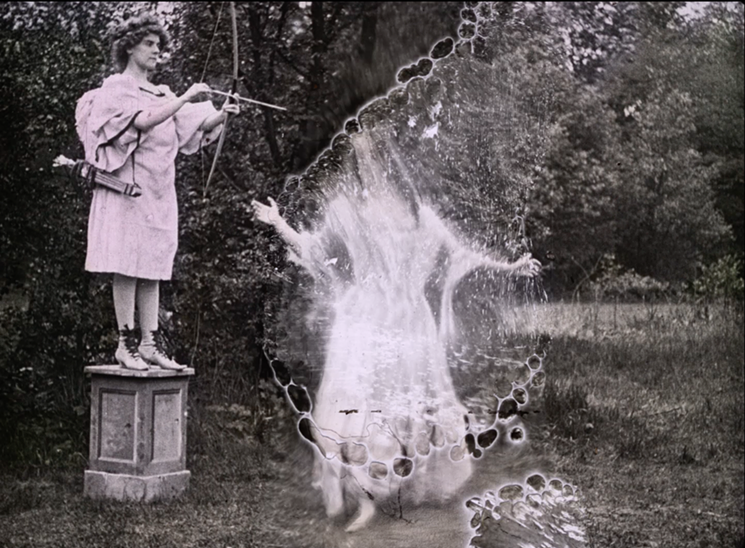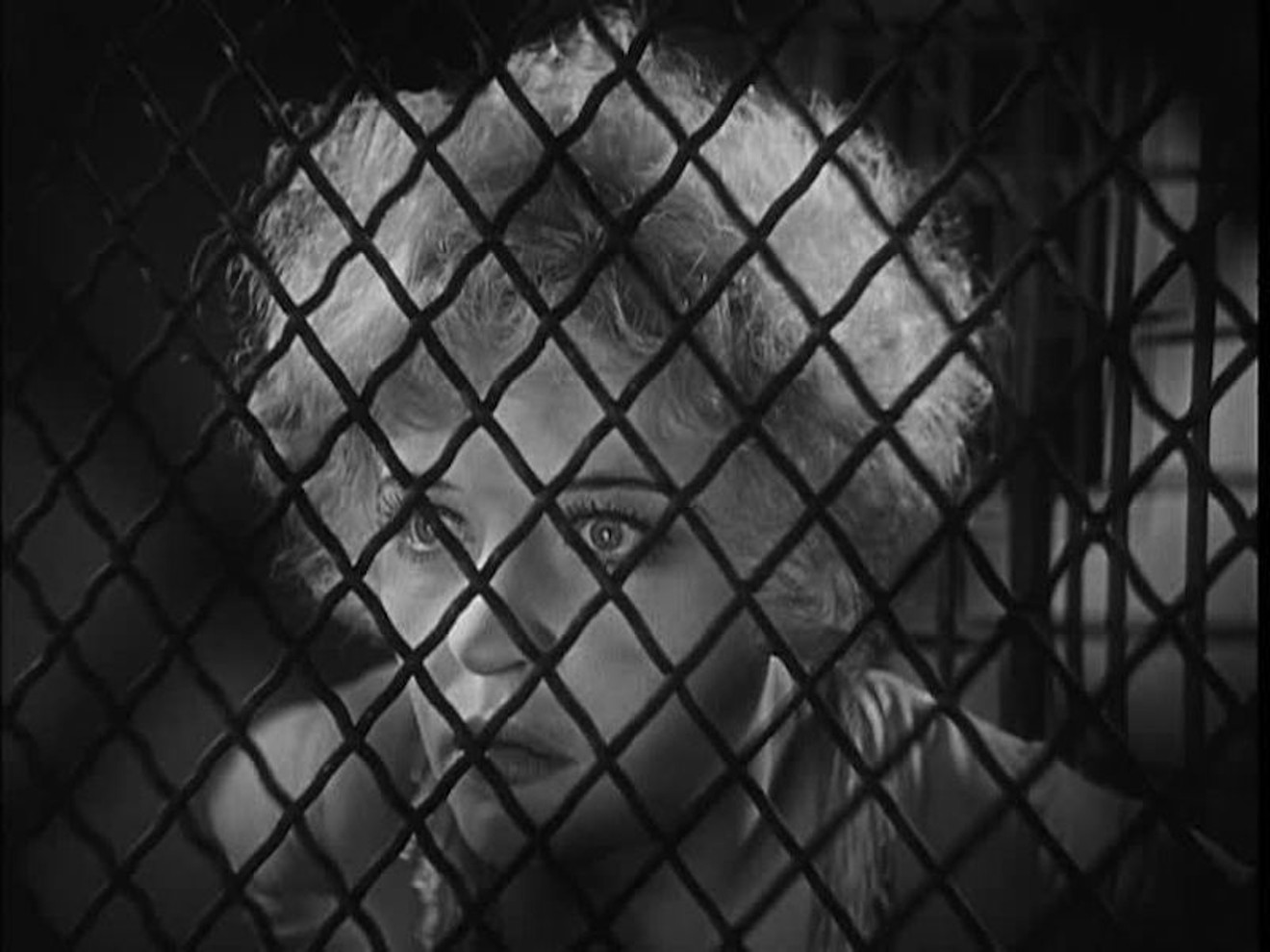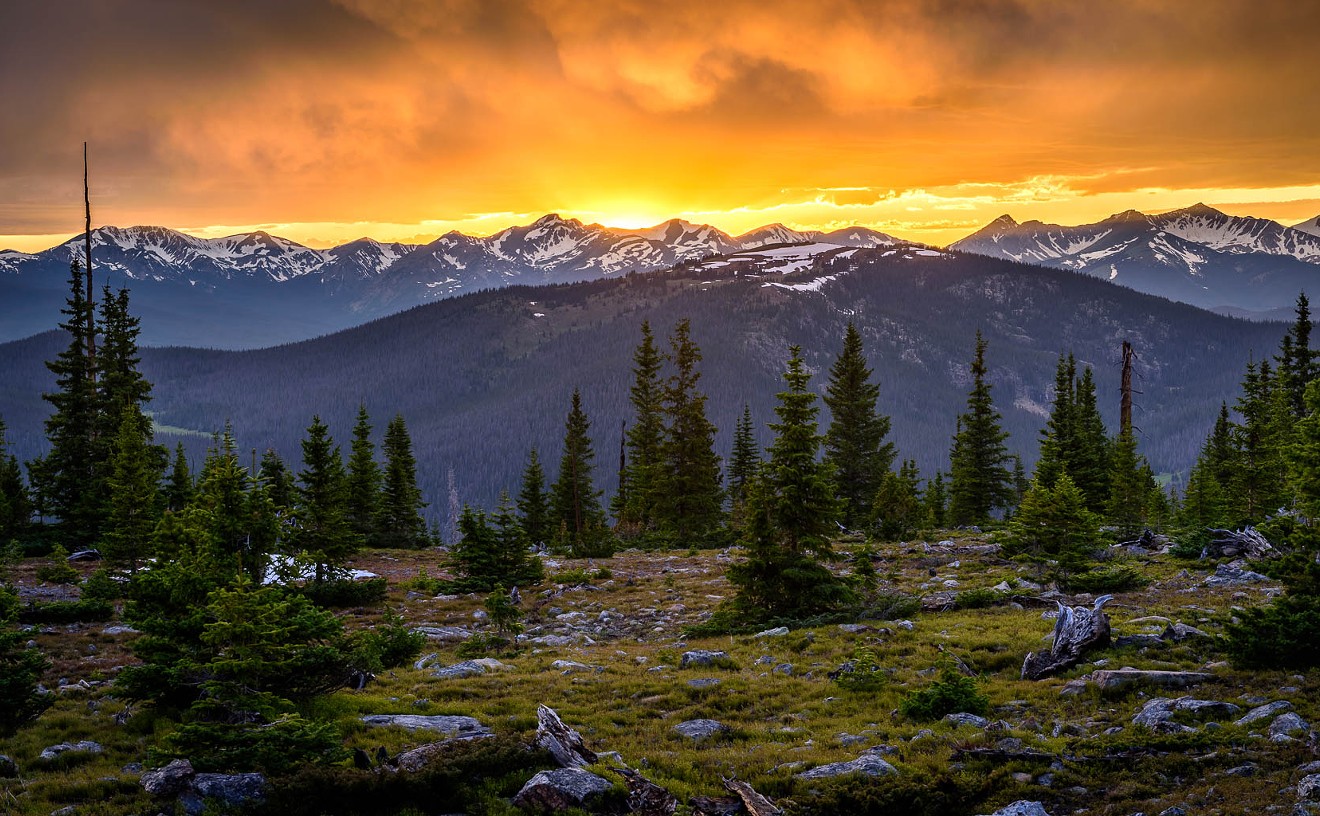Howie Movshovitz and the movies go back a few decades in Colorado, where he’s become a constant and intrinsic part of the Mile High’s cultural landscape. It’s a tailor-made role that’s always been a labor of love, for a guy who’s totally smitten with the cinema — and its history, lore and people. As a critic, he’s held court in local newspapers and on the radio for years (currently, you can hear him on KUNC); as a film educator and scholar, Movshovitz gladly shares his insights in the classroom and at monthly Tattered Cover Film Series screenings. But as a champion of the movies, he’s a true mensch, whose greatest contribution of all might well be the Denver Silent Film Festival, which returns for its seventh year at the end of April (details below). It's a class act that’s deftly curated and includes live musical accompaniment at every screening. What’s it like living the dream? Movshovitz tells all, like a pro, via the 100CC questionnaire.
Westword: What (or who) is your muse?
Howie Movshovitz: I don’t have a muse, but there are plenty of people I learn from and who push me to think and feel more fully than I might otherwise do. My wife, Janis Hallowell, has remarkable intellect, talent and feeling; my daughter, Zoe Ward, is possessed of startling insight. My friend Jerry Jacobson, a retired shrink, may be the most understanding person I know. Then there’s Jean Renoir, for me the best of filmmakers so far, and Agnes Varda, who invented the French New Wave — five years before the boys (Truffaut, Chabrol, Godard, etc.) got into the act. She’s my friend, and at the age of 89 was awarded an honorary Oscar, nominated for a “real one” (for best doc — Faces, Places), and she never lets anything go unchallenged.
Which three people, dead or alive, would you like to invite to your next party, and why?
You mean famous people? How ’bout Barack Obama, Homer and Ernst Lubitsch?
Why? Whew. Obama is a person of integrity and brains, who was also president and who knows how to laugh.
Homer? Because he had a phenomenal sense of what it means, and how hard it is, to come home, in every sense, literal and metaphorical. Lubitsch, because he had a stunning sense of humor (look at Ninotchka, Design for Living, Trouble in Paradise, The Shop Around the Corner) and because he also had great respect for human beings.
I’d love to squeeze in George Eliot — jeepers, could she write — and whoever made the paintings 45,000 years ago in the Chauvet cave in France. (But what would she want for dinner?)
What’s the best thing about the local creative community in your field — and the worst?
There’s a great audience for film here. I know a lot of people who love film and engage with it in serious, informed, non-pretentious ways. But I wish that more people who want to make films had greater artistic ambition than they do.
How about globally?
Great filmmaking ebbs and flows all over the place. Right now, places like Sweden, Italy, the U.S. and maybe China are not turning out numbers of wonderful films, as they have in the past. Iran is. Go figure.

Le Fer a Cheval (Horseshoe), coming soon at DSFF 2018.
Marcello Seregni of L'immagine Ritrovata, Bologna, Italy
Roger Ebert, leading a screening of Citizen Kane at the Conference on World Affairs at CU Boulder in the 1970s, made me see how cinema works. Linda Williams, who became a major film scholar, occupied the desk next to mine in the English department graduate students’ office. We started a conversation about film that still continues. And Chaplin, first in Easy Street and then at the end of City Lights — bowled me over with his vision that the best comedy and humanity are inseparable.
What’s your best or favorite accomplishment as a critic and movie lover?
I love talking about movies on the radio (KUNC), and when I do a national story for NPR, my friends all over the country get to hear it. When I teach at UCD, I’m cheered if even just a few students get turned on to film. Having helped start the Denver Silent Film Festival ranks pretty high. In 1990, a small Canadian film called Strangers in Good Company came to Denver for a scheduled four-day run. According to the people who then ran Landmark, my review made them keep the film for about a month. It’s a pretty good film, not a great one, but a bunch of people said it mattered to them. And maybe best of all, Varda last fall told someone that I always “fight for cinema.”
You’ve come this far in life. What’s still on your bucket list?
I don’t have a list, but I want to spend more time in Paris. I want to get better at my work. I want to raise an endowment for the silent film festival. I want to see Marcel Carné’s 1939 Le Jour se Leve on a big screen. I want to have lunch with Mike Leigh.
Colorado, love it or leave it? What keeps you here — or makes you want to leave?
I came here in 1966 as a VISTA Volunteer (then, the domestic version of the Peace Corps). I became an adult here. I went to graduate school here. I became a film critic and a teacher here. I married and became a parent here. My community is here. I live here (actually on a tiny farm in Boulder County). I’ve always figured that if I had become a critic in New York (a big if), I might be a better critic because of the competition — but I’d be a lot more twisted and neurotic.
Who is your favorite Colorado Creative?
Duh. My favorite “Colorado Creative” is Janis Hollowell, who’s a fine novelist and maker of pottery.
What's on your agenda in the coming year?
I want to solidify the organization for the Denver Silent Film Festival. We’re small — only a weekend of film on one screen — but I’d like to expand what we do year-round and get more people to appreciate the tremendous poetic beauty of silent film, and also its great appetite for comedy. Janis wants me to write a book based on my forty-plus years as a film critic. It’s a good idea, and I have forty-plus years of interviews recorded with marvelous filmmakers that I’d like to make available to people who might be interested.
Who do you think will (or should) get noticed in the local arts community in the coming year?
Young documentary filmmakers Aaron Kopp and Amanda Kopp. Their Liyana looks into the imaginations of five kids in Swaziland who’ve suffered horribly from war. Aaron and Amanda have the artistic ambition and the talent to get better and better at their work.
The seventh annual Denver Silent Film Festival 2018 opens with Frank Urson’s 1926 potboiler, Chicago, on Friday, April 27, at at 7 p.m. at the Alamo Sloan's Lake, 4255 West Colfax Avenue, and runs through Sunday, April 29. Buy individual tickets, $8 to $13, or festival passes, $110, in advance at Alamo Drafthouse online. Learn more and find a complete schedule at the DSFF home page.














